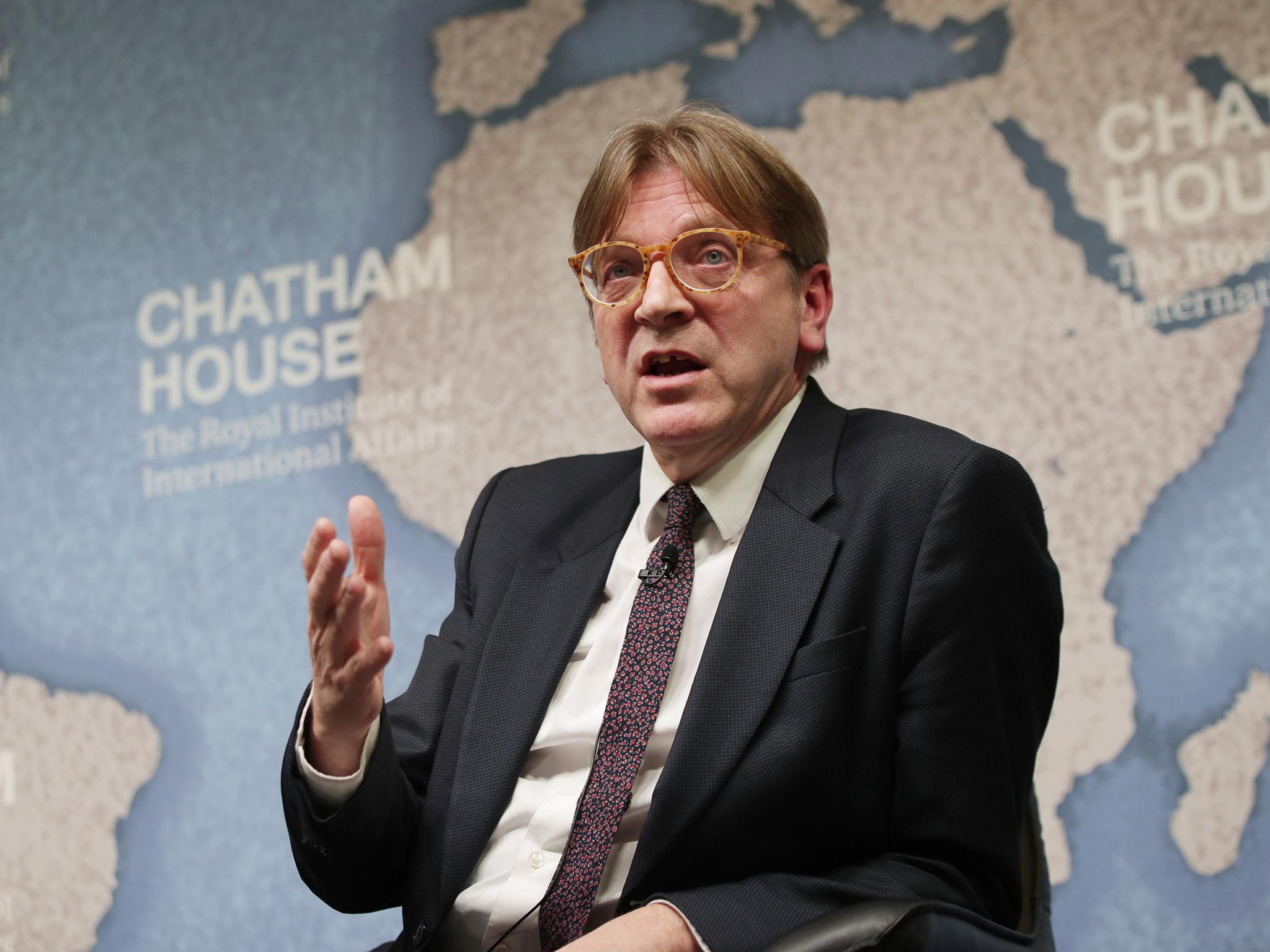Brexit negotiator Guy Verhofstadt attacks Theresa May's 'threat' to weaken EU security commitments
'The security of our citizens is far too important to start a trade off' he says - after Prime Minister demands partnership on 'both economic and security matters'

Your support helps us to tell the story
From reproductive rights to climate change to Big Tech, The Independent is on the ground when the story is developing. Whether it's investigating the financials of Elon Musk's pro-Trump PAC or producing our latest documentary, 'The A Word', which shines a light on the American women fighting for reproductive rights, we know how important it is to parse out the facts from the messaging.
At such a critical moment in US history, we need reporters on the ground. Your donation allows us to keep sending journalists to speak to both sides of the story.
The Independent is trusted by Americans across the entire political spectrum. And unlike many other quality news outlets, we choose not to lock Americans out of our reporting and analysis with paywalls. We believe quality journalism should be available to everyone, paid for by those who can afford it.
Your support makes all the difference.The European Parliament's chief Brexit negotiator has attacked Theresa May’s apparent threat to weaken security commitments to the EU if Britain is denied a trade deal.
Guy Verhofstadt reacted angrily to the text of the Article 50 letter, which mentions “security” no fewer than 11 times – including the need for a partnership on “both economic and security matters”.
It prompted speculation that Britain might refuse to co-operate in European arrest warrants, or to share DNA files for example, if it failed to get its way – something No.10 insisted was not the case.
But Mr Verhofstadt, speaking on behalf of MEPs, said: “What we shall never accept is that there is a trade off between the one and other.
“Saying, oh, we can do a good deal on security – internal and external – but there is also a deal that we want on trade and economics.
“I think the security of our citizens is far too important to start a trade off from one to the other. From our point of view both are absolutely necessary.”
In the letter, the Prime Minister wrote: “In security terms, a failure to reach agreement would mean our cooperation in the fight against crime and terrorism would be weakened.”
And it added: “Europe’s security is more fragile today than at any time since the end of the Cold War. Weakening our cooperation for the prosperity and protection of our citizens would be a costly mistake.”
The stance was also condemned as “utterly scandalous” by Tim Farron, the Liberal Democrat leader, who tweeted: “This letter is a blatant threat - security co-operation has been lumped together with trade.”
And Yvette Cooper, the Labour chairwoman of the Home Affairs Select Committee, condemned the approach as “not only wrong but dangerous”.
“She should not be trying to use this as a bargaining chip in the negotiations,” Ms Cooper said.
“This is not a threat to the rest of Europe, it would be a serious act of self-harm. She should rule out now walking away with no security deal as our national security and public safety depend on it.”
In a leaked resolution, the European Parliament also vowed that Britain will not be given a free trade deal by the EU in the next two years – after Philip Hammond insisted he was “very optimistic”.
Instead, MEPs will insist upon a form of associate membership, likely to be based on an agreement already reached with Ukraine.
And they warned that, if Britain seeks a transition deal, to cushion the economic blow from Brexit, it can only run for three years and must be “limited in scope”.
There will be no special deal for the City of London giving “preferential access to the single market and, or the customs union”, the Parliament will also stipulate.
Subscribe to Independent Premium to bookmark this article
Want to bookmark your favourite articles and stories to read or reference later? Start your Independent Premium subscription today.
Join our commenting forum
Join thought-provoking conversations, follow other Independent readers and see their replies
Comments